
Encrypting Your Video Files with Folder Lock
It's essential to protect your video files from unauthorized access. Whether it's a private family video or confidential business footage, a strong encryption tool is the best way to ensure your data stays secure. This comprehensive overview will show you how to effortlessly encrypt your video files using Folder Lock, a powerful and user-friendly software from Newsoftwares.net.
Why Encrypting Videos is a Smart Move
Video files, like MP4, MOV, and AVI, often contain valuable and sensitive information. Relying on basic security measures, like simply hiding a file, is not enough to deter someone from accessing your data. Encrypting your videos creates an impenetrable barrier, preventing unauthorized individuals from viewing your content. This is crucial for:
- Personal Memories: Securing private videos and recordings.
- Business Confidentiality: Protecting corporate training footage, sensitive presentations, or confidential meeting recordings.
- Creative Projects: Safeguarding unreleased films, client work, or artistic portfolios.
Any video file you want to keep private should be encrypted as a necessary and highly effective security practice.
Folder Lock vs. Basic Security
When it comes to securing your video files, there are no robust, native password protection features in most operating systems. You have two main options: using basic security measures or a dedicated third-party application.
- Basic Security: This might involve hiding a file or using a general folder encryption tool. These methods provide very little real security. A hidden file can be made visible with a simple change in settings, and basic encryption is often weak and easily bypassed.
- Dedicated Offline Solution: A specialized application like Folder Lock provides a far more robust alternative. It uses military-grade AES 256-bit encryption, a global industry standard for data security. Your files are encrypted locally and never uploaded to a third-party server, ensuring maximum privacy.
For uncompromised security, a dedicated offline tool is the clear choice.
The Folder Lock Method: Unlocking a Simple, Secure Workflow
Folder Lock simplifies the encryption process by creating a secure, virtual container for your data. You can follow these steps to encrypt your video files.Pre-Requisite
You need to install the Folder Lock application. If you have not installed it yet, you can read How to Download, Install, and Get Started with Folder Lock.
Method 1: Protecting via Safeguard Tab
This method is ideal for securing a video file without moving it from its original location.
Step 1: Open Folder Lock
- Launch the Folder Lock application on your computer and log in with your email and password.
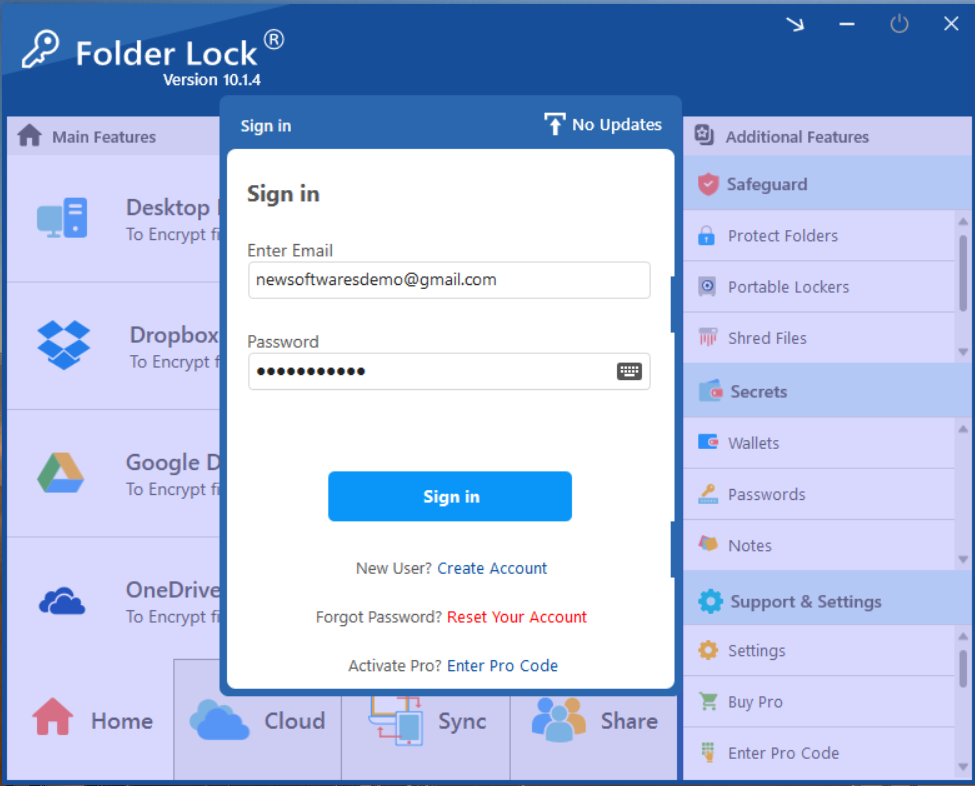
Step 2: Select "Protect Folders Under Safeguard Tab"
- Within the Safeguard section, click on the "Protect Folders" tab. This will open the interface for hiding your items.
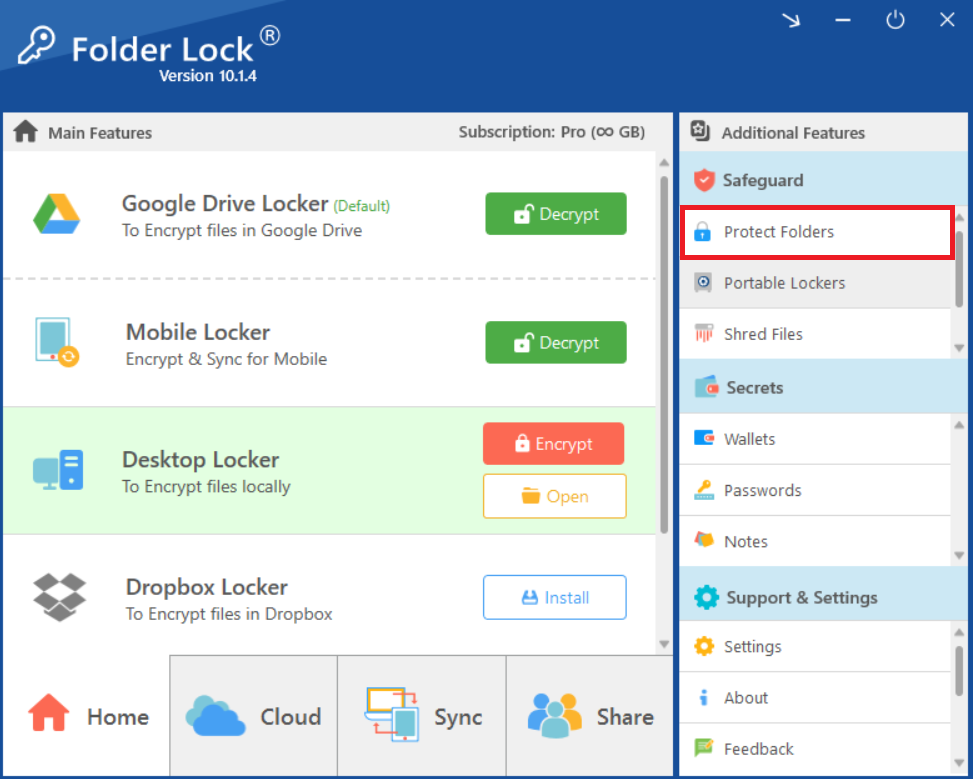
Step 3: Add Items to Lock
- In the "Protect Folders" view, click on the "Add Items to Lock" button at the top of the screen.
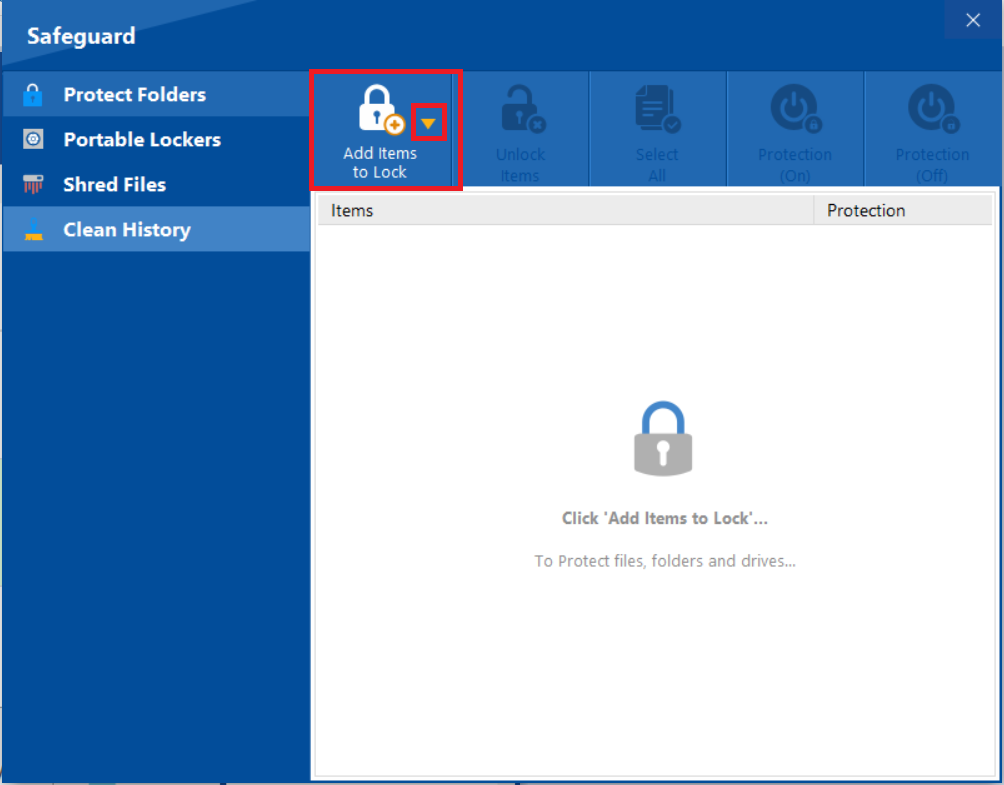
- A dropdown menu will appear. You can choose to add individual "File(s)","Folder(s)," or entire "Drive(s)" for protection. For protection of a video, we will be selecting "Add Files".
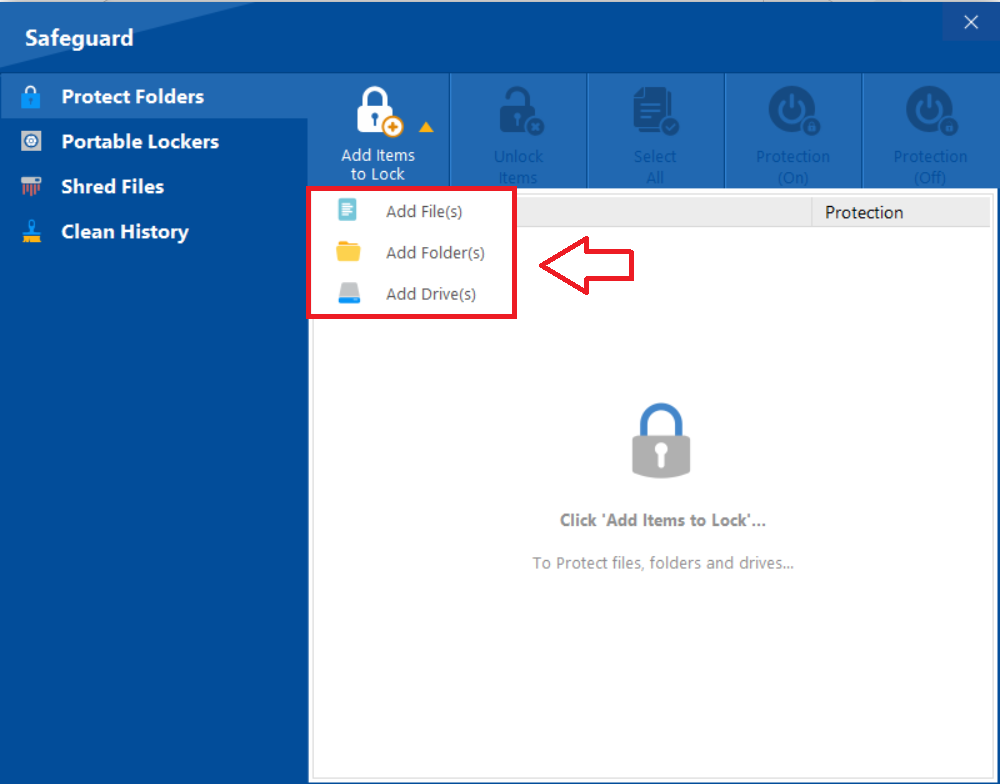
- Click on "Add File" to browse and select your video file.
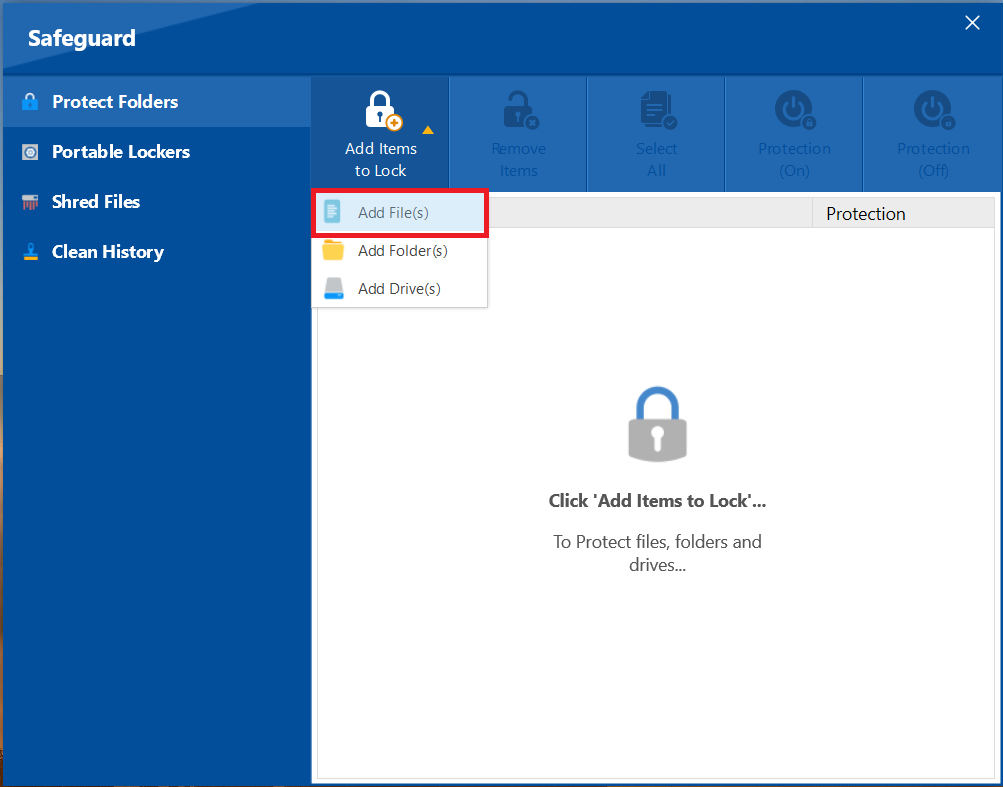
- From the Browse menu, select your video file (e.g., .mp4, .mov). After successfull addition of your selected video file, your selected ones will appear as shown in below screenshot.
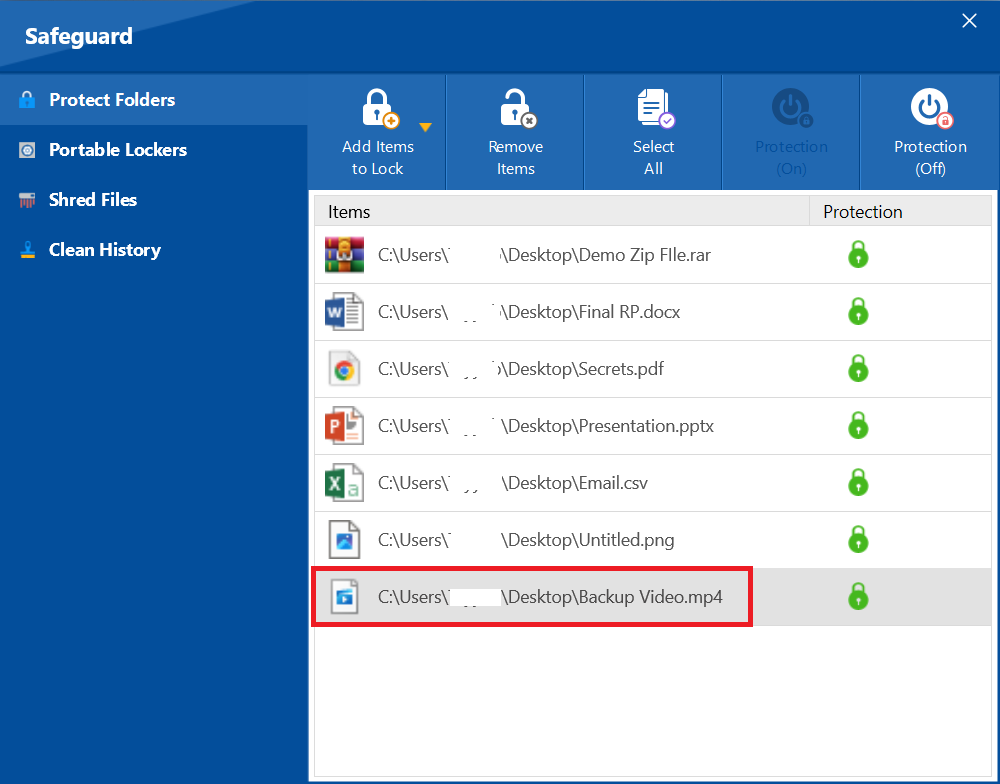
Step 4: Confirm Encryption Status
- A green lock icon will appear under the "Protection" column, signifying that your file has been successfully secured in its current location.
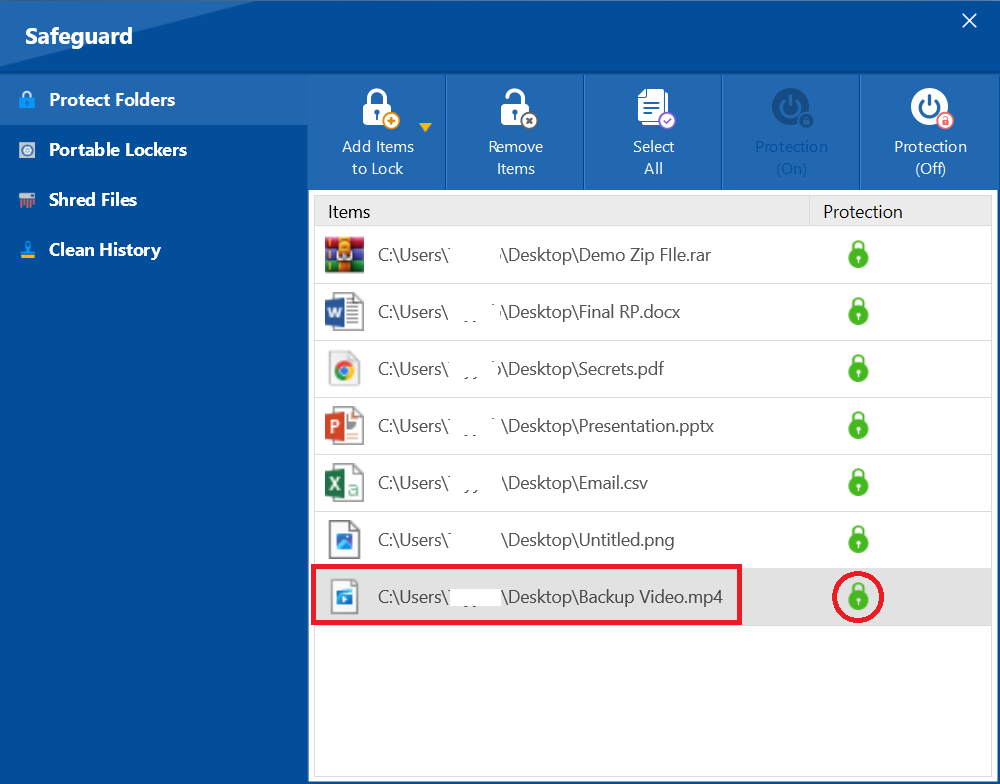
Method 2: Protecting Video File via Desktop Locker
This is the fastest way to get a video file into a secure container. It's a lifesaver when you're in a hurry.
Step 1: Open Folder Lock and Your Locker
- Launch the Folder Lock application and enter your master password.
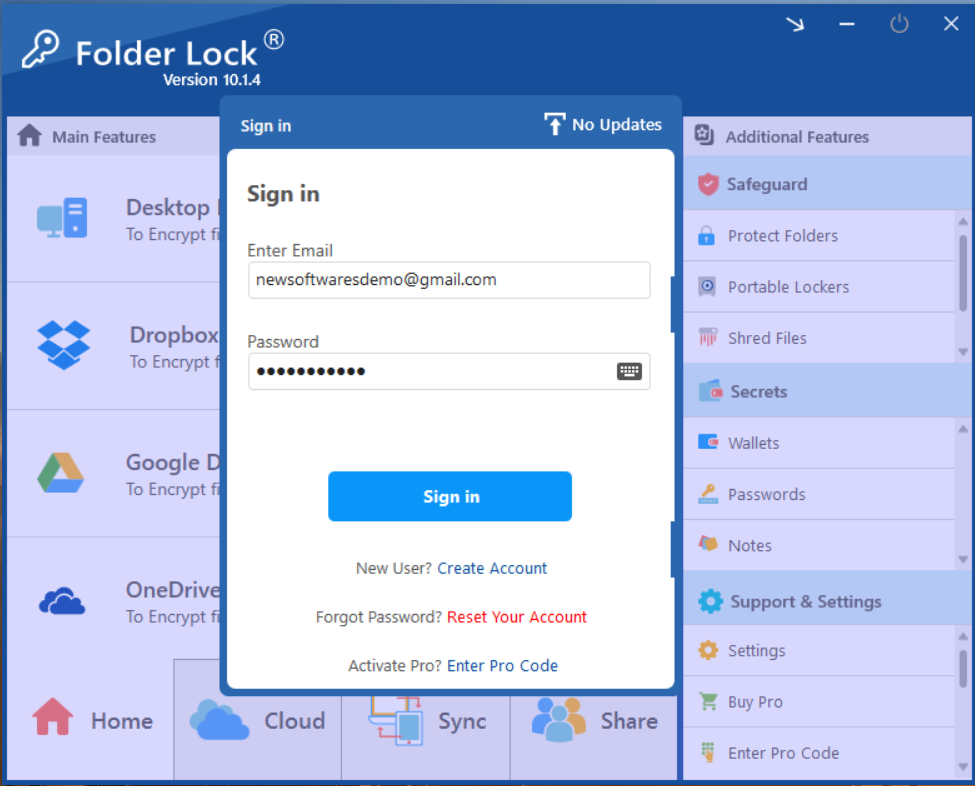
- On the main screen, find the "Desktop Locker" section. If your locker isn't open, click the "Open" button next to it. Your Desktop Locker will open in a new window.
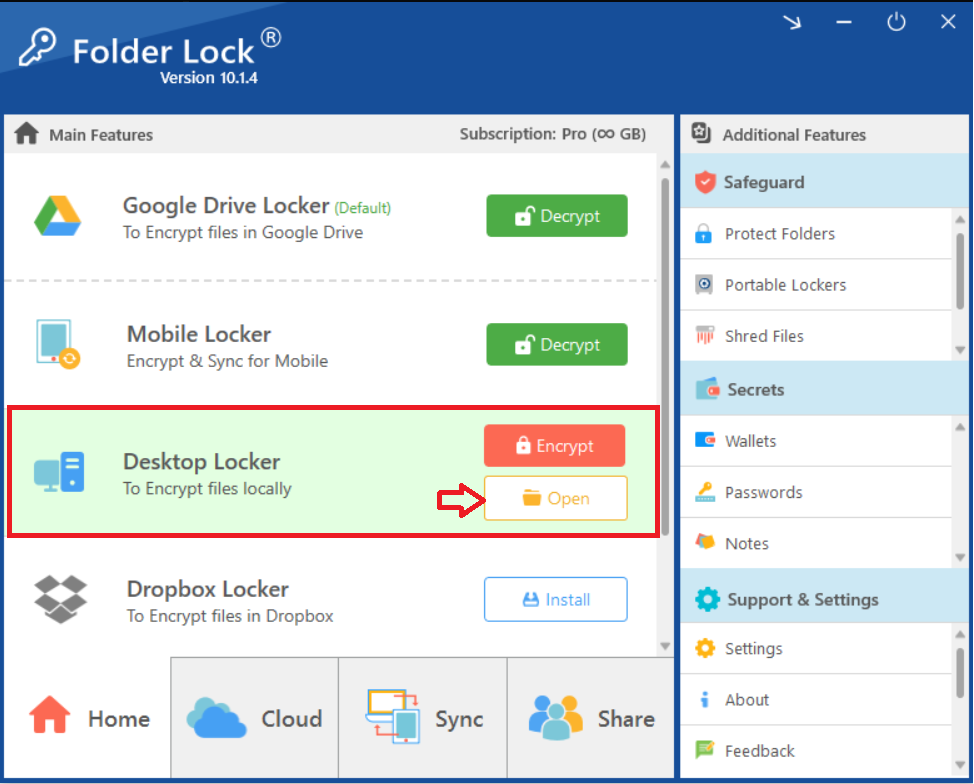
- Clicking on Open will open your Desktop Locker in Windows File explorer as shown in below screenshot.
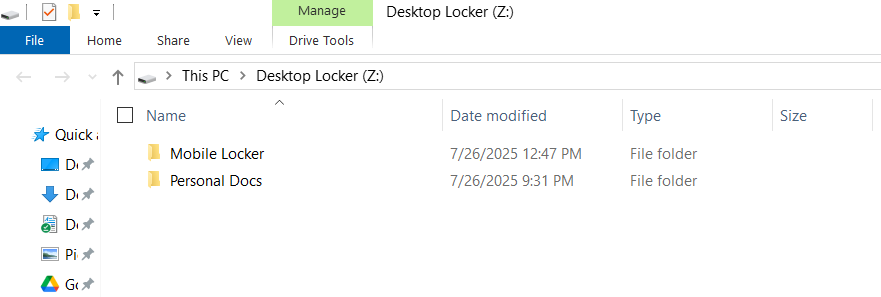
Step 2: Move Your Video File into the Locker
- Find the Video file on your computer that you want to protect. Drag the file and drop it directly into the opened Desktop Locker window.
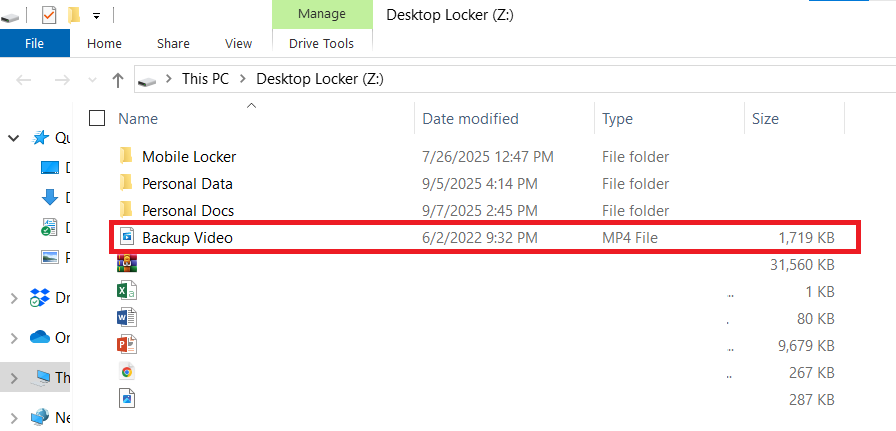
Step 3: Encrypt Your Locker
Once you have moved your video file inside, return to the main Folder Lock application window. Click the "Encrypt" button next to the Desktop Locker. This action will hide the locker and secure all files inside, including your video file.
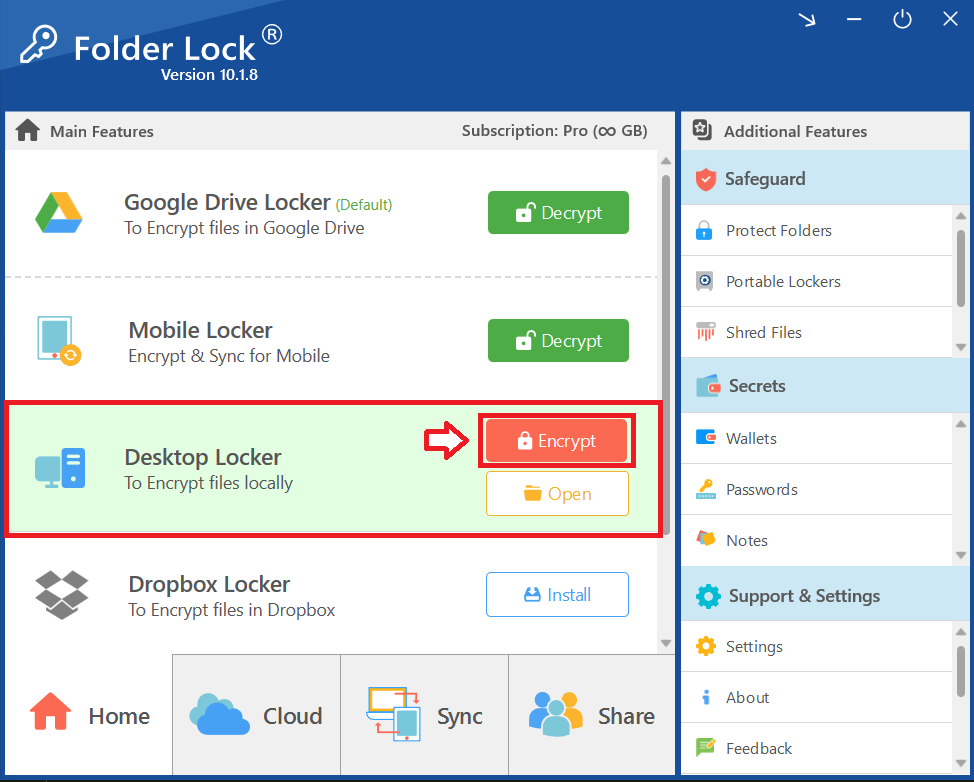
FAQs
Q: What happens to my original video file?
A: The original file is either moved into the encrypted locker (Method 2) or is securely hidden in its original location, making it inaccessible until you unlock it through Folder Lock.
Q: Can I still view the video in the protected locker?
A: No. You must first decrypt and open the locker to view or edit the files inside.
Q: Is the encryption truly reliable?
A: Absolutely. Folder Lock uses AES 256-bit encryption, the same level of security trusted by governments and major corporations worldwide.
With this comprehensive overview, you've mastered the essential methods for protecting your videos with Folder Lock. By taking a decisive step to encrypt your video files, you ensure your most private moments and creative work are shielded from unauthorized access, giving you complete control over your digital footprint.

